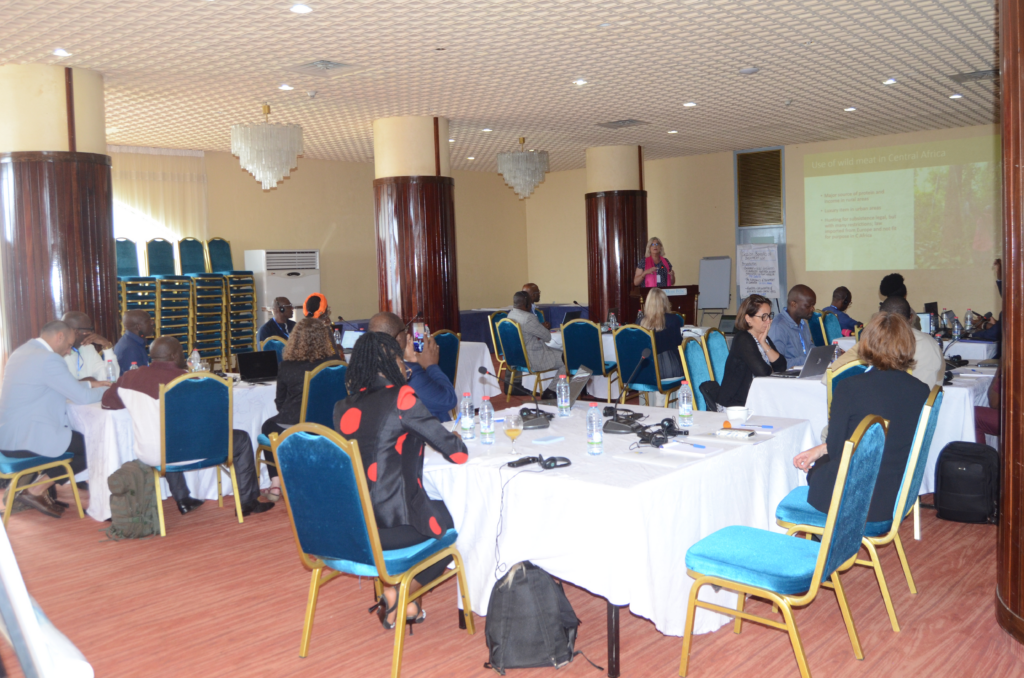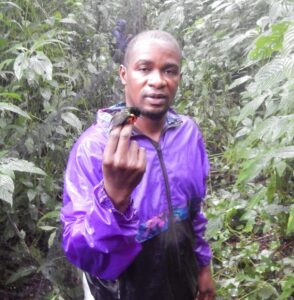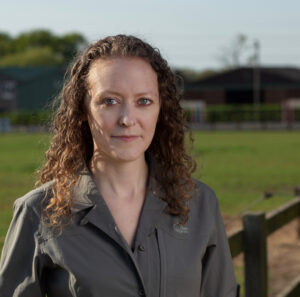University of Oxford
11a Mansfield Rd
OX1 3SZ
UK
Supporting evidence‐based, effective reforms of Central African wildlife use policies.
Collaborators: Centre for International Forestry Research (CIFOR), Wildlife Conservation Society (WCS) Congo DRC, LAGA/Eagle Network, TRAFFIC, Central African Bushmeat Action Group (CABAG), Ministry of Wildlife and Forestry Cameroon, The Research Institute for Tropical Ecology, Gabon (IRET), EU Sustainable Wildlife Management (EU-SWM) Programme.
Research Overview: Bushmeat is a key source of food and income for many rural and urban people in Central Africa and has been used sustainably by rural communities for millennia. However, the population in Central Africa is growing, and with it the need for accessible, healthy, and safe sources of food. The pressure on wildlife as a source of food is leading to sharp declines in some of region’s iconic wildlife species, which in turn could affect the food security of rural people. Many of the policies and laws governing bushmeat use and trade have their roots in European hunting laws and are therefore not always well suited to the use of bushmeat by urban and rural people nowadays.
The question at the heart of this project is how currently failing regional and national wildlife policies and subsequent legislation can be better constructed and accepted to support sustainable subsistence and cultural use of wildlife by local communities, while ensuring the health and persistence of Central Africa’s wildlife, as the region’s market economy continues to develop.
The challenge is therefore to develop fair policies, laws and regulations that can allow for sustainable use of resilient wildlife species while also protecting vulnerable species and ecosystems. The project will convene several meetings in three Central African countries (Cameroon, Democratic Republic of Congo and Gabon) that will bring together local stakeholders, national, regional and international bushmeat and legal experts to discuss the current-day importance of bushmeat and wildlife in the region, the current and potential avenues for the sustainable use of bushmeat, and how national strategies and policies can be informed by and be complemented by wider regional bushmeat strategies in Central Africa.
Outline of research:
This project is run by the SNAPP working group, which supports national policy makers in Central Africa, by providing them with a wild meat evidence base to help inform their decisions. It is also supported by the EU Sustainable Wildlife Management (EU-SWM) Programme, which has been conducting reviews of hunting legislation in countries across the world, using the new EU-SWM Legal Hub Toolkit, and the UKRI-funded TRADE Hub project, which supports the development of sustainable wildlife trade through evidence-based policy making.
Objectives:
- Develop a collective understanding of the bushmeat sector in Central Africa, and from this identify the knowledge and evidence-base that is available and required to support the sustainable, equitable and safe use of bushmeat in the region.
- Generate and share knowledge on the use of bushmeat in Central Africa and impacts of transforming its use, leading the groundwork for a nationally led report.
- Evaluate the current laws and policies governing and managing wild meat use in Central Africa and discuss their merits and flaws.
- Analyse a range of approaches used in the Central African region to govern and manage bushmeat use, and their potential application.
Agree on potential measures that are needed at the national policy level in Central Africa to facilitate the sustainable use of bushmeat in the region, the resources needed to meet this challenge, and a potential timetable for activities.
Summary of planned activities:
May 2022: Online creation of the working group. Groundwork to reach out to potential partners, create the online infrastructure for the working group; set SMART objectives; assign tasks to the different participants, mobilise data from different sources and databases.
July 2022: Working group website launched. Website created to link working group members (member login), organise online working, and disseminate working group outputs (https://snappartnership.net/teams/sustainable-wild-meat-management/).
August 2022: Review of hunting legislation published as 3 individual country briefs, and 1 regional brief. Legislation that is directly and indirectly relevant to hunting in Cameroon is gathered and analysed using the SWM Programme Legal Hub Toolkit, adding to the analyses already conducted for DRC and Gabon.
January 2023: Kinshasa, DRC. 4-day meeting of the working group and key stakeholders, including policy makers from national government departments and civil society representatives to discuss the findings of the legal review and establish information needs of policymakers to inform national wildlife use policy and legislative reviews.
February 2023: Oxford UK (GCRF-TRADE funded). 3-day meeting, convening regional and international stakeholders to design indictors of wildlife use for application at site, national and international levels, to track project-level impacts, national policy impacts, and progress towards international Targets (e.g. CBD).
March 2023: Policy brief, for each country providing, where available, the information requested in the Kinshasa meeting.
July 2023: Yaoundé, Cameroon. 4-day meeting of the working group and key stakeholders to present the evidence base back to policymakers and stakeholders.

July 2023 meeting in Cameroon
August 2023: Libreville, Gabon. 4-day meeting to present working group expert opinion on possible legislative reforms available for the country, likely positive and negative outcomes of adopting the options and practical considerations for authorities, or local communities, monitoring livelihood and wildlife responses.
December 2023: Online information and tools for policy makers through long-term website. Policy-relevant information is provided through the working-group website.
March 2024: Final report and long-term strategy. Outlining a) the key information provided by the working group; b) progress made in applying this information to reform of wildlife use policy and legislation and c) next steps required for long-term engagement with wildlife policy and implementation in the region.
June 2024: Scientific paper on wildlife use indicators outlining key wildlife metrics that can be used to track progress towards international sustainable use targets and those to track national policy impacts within Central Africa.
Project overview
Researchers



Funders

